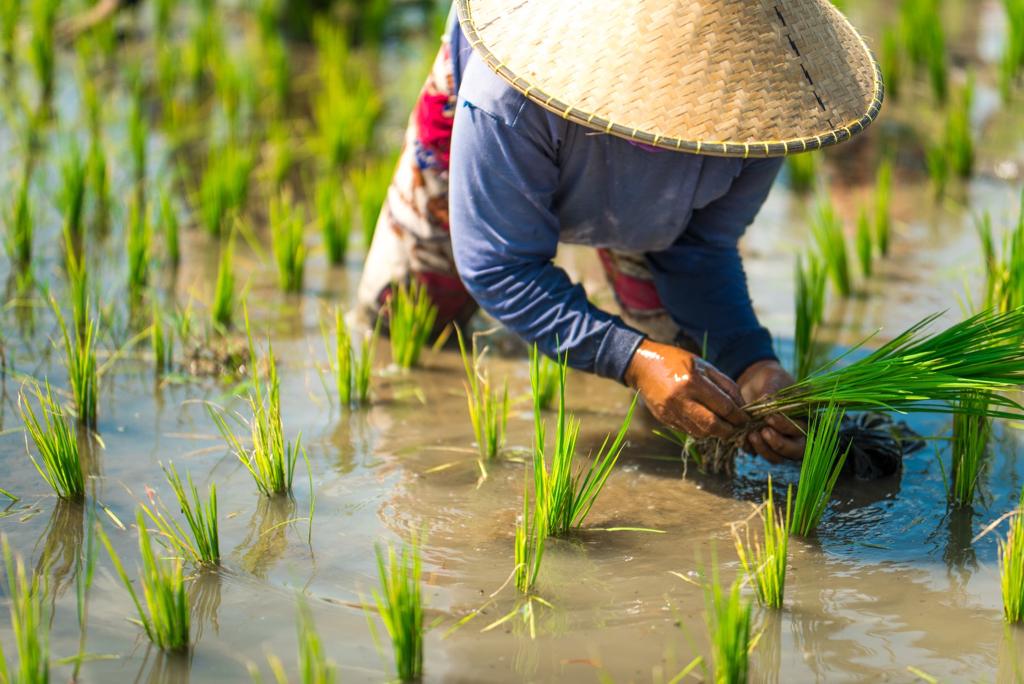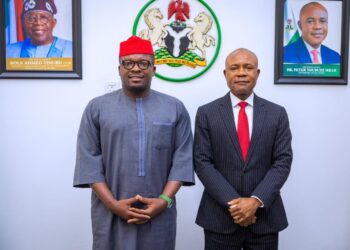Dear Mr. President,
In 1978, Steve Jobs raised over a million dollars from the garage of his house through the use of his intellectual collateral, not a property, to develop the largest technology company and the biggest firm in the world today by market capitalization.
The multi-trillion-dollar vision with a backbone of public research funding from the U.S. government was achieved based on the national importance of driving innovation and as a sign that the government’s investment and its initial leg into great companies do not only present tax benefits but also profit the entire ecosystem.
Government creates greatness. In fact, renowned industrialists like John D. Rockefeller, Cornelius Vanderbilt, and Sakichi Toyoda, among a host of other business magnates who received firm governmental support, have today created empires that provide jobs for millions of people globally.
Your excellency, there’s no greater and more fascinating story than a flourishing economy that thrives on innovative businesses.
Thus, intentional support for subsidising businesses and dreams is a strategic and intelligent thing to do as a nation.

In Nigeria today, no start-up or entrepreneur can raise one naira in pre-seed funding without having to provide an arm and a leg. A demand for physical collateral that cripples revolutionary ideas and quenches the visionary flames of entrepreneurship.
With over 200 million citizens and a pregnant economy that must be delivered through the surgical needle of proper restructuring, the Nigerian business landscape must recover from its 77% year-on-year funding decline, a sharp fall from the $2 billion that the startup ecosystem attracted between July 2021 and June 2022 to $470 million in the last year (July 2022 to June 2023).
Asiwaju, as the economy continues to find its feet, the hikes in food prices and transportation are slowly eating deep into the moral fabric of society.
Uncommon entrepreneurs are forced to explore new terrains with the Jakpa syndrome, where countless of Nigeria’s brightest minds seek opportunities elsewhere, away from their homeland.
Even companies with over 100 employees are being forced out of business or in debt due to a series of negative funding. An employee who earns N200,000 as a monthly salary today still struggles with the skyrocketing cost of living, which takes up more than 70 percent of the income.
This influences the decision of such staff to seek alternative ways of surviving while living in debt, even before salaries are paid (if paid on time or even ever paid after 3 months).
Father, Nigeria’s current economic situation is like a mosquito sitting on one’s scrotum; the slightest amount of anger or irritation will lead to excruciating social and economic unrest.
Although all hopes are not dashed, in fact, new ones are being created as businesses gradually move from brick-and-mortar into the digital space.
In today’s fast-paced society, the criteria for support should shift from tangible to intellectual assets, where vision can be invested in with funding and monitoring timelines and milestones, creating an enabling environment where competence and integrity prevail over connections and deceit.
As it stands today, no Nigerian bank is able to give any entrepreneur, visionary businessman, or woman one naira without a property asset or fixed asset to be held as collateral.
Amidst innovative thinking, financial engineering has crippled the growth of radical entrepreneurs, who have no problem with the presence of vision but lack everything in the acquisition of tangible collateral.
For Nigeria to reclaim its position as the Jewel of Africa and maintain its stance as the economic heart of Africa, it is crucial to urgently take into consideration this:
7 Pillars to Tackle Economic Deprivation in Nigeria:
- Funding Opportunities: One of the biggest challenges facing entrepreneurs is access to capital. Funding remains the engine that propels innovation, generates new businesses, and brings fresh products and services to the market. As such, the government has to encourage financial institutions to create an intellectual and creative collateral system for businesses with no alternative for physical collateral such as lands or properties.
- Reducing the regulatory burden on entrepreneurs: To further promote the entrepreneurship culture, especially among youths, the current political dispensation has to reduce the bureaucratic red tape by simplifying and streamlining the process of starting and running a business. For example, the World Bank’s Ease of Doing Business Index ranks countries like Singapore and the United Arab Emirates at the top of the list due to their business-friendly policies, while Nigeria is not even among the first one hundred.
- Agricultural Exploits for Food Security: If you travel through the Lagos to Ibadan expressway, or the Kano-Zaria road, spans of land remain uncultivated, creating backlogs of agricultural deficits that won’t only tackle food scarcity if properly utilised but also create jobs for potential farm entrepreneurs while drastically reducing crime rates.
Nigeria is blessed with over 34 million hectares of arable land, a farming sector that has the potential to contribute above 23% to the nation’s GDP.
As a symbol of hope, Suji Farm Estate, a subsidiary of the esteemed Sujimoto Group, is taking on the mantle with a firm plan to allocate over 20,000–1,000,000 hectares before 2030, spreading across all geopolitical zones and all 36 states, for localised food production and mass employment opportunities designed to provide job security for over 10,000–200,000 citizens nationwide.
With a clear plan for setting up a team of young, independent, and outstanding youth to supervise work, live, and play on the farm.
Suji Farm Estate will be built on an advanced farm estate system that incorporates housing, farm hospitals, hotels, and markets within an ecosystem, creating opportunities for agro-tourism and affordable housing.
In tackling food security, aside from creating thousands of farm entrepreneurs, the government must seek out innovative people not only Sujimoto Farms but also numerous young agro-entrepreneurs across all 37 states—who have exceptional reputations, passion and technical know-how, encourage them, and fund them. It is in the government’s interest to intentionally fund businesses and projects with strong potential to impact our dare economy, which will eventually drive taxes and many other benefits for the nation.
- An idle hand is the devil’s workshop: Nigeria currently sits on a keg of gun powder as the unemployment rate remains on the rise. The youth of the nation is our biggest asset, and it is alarming that over 42% of her population is out of work, a silent time bomb and a destructive tool vulnerable to use by terrorists, banditry, and other related vices. It is urgent that the youth start putting their expertise into farming and other lucrative ventures.
- Government supports innovative enterprise: Yes, not all governments have the obligation to support businesses, but governments have a moral duty and obligation to partner with businesses because a thriving business is a thriving nation.
Great nations like Egypt and Singapore are intentionally encouraging localised production and promoting local enterprises. It is high time for the Nigerian government to create stimulus packages for businesses and local entrepreneurs to help them achieve their goals, promote job opportunities, and drastically improve foreign exchange. This should not come in the form of grants but in affordable and accessible loan packages for specified durations.
Sectoral Research and Development: If Elon Musk was in Lagos, he probably would have ended up in a computer village selling mobile devices, with his innovative ideas frustrated due to lack of funding. Steve Jobs also may have been a genius entrepreneur—he certainly had an eye for design—but his most successful product would not exist if it weren’t for the billions of dollars that the US government spends every year on research and development.
Just like SpaceX, although it is not yet in the full stage of generating revenue, the American government has also maintained a great share in funding the technological corporation because of its economic relevance and research impact on global society.
Nigeria can’t afford to think small. As the giant of Africa and the biggest nation in Africa with the biggest problem, the government needs to go out there and identify 10,000–50,000 outstanding entrepreneurs from all 36 states who have the capacity and reputation to do things differently, empower them beyond physical collateral, invest in their intellectual property, and create an enabling environment where competence and integrity prevail over connections and deceit.
Localised Production, Global Distribution: As of today, a 50-kg bag of rice costs N42,000 from the mills and about N52,000 from supermarkets, whereas the same bag of rice is worth N22,000 at Seme Border, Republic of Benin. The secret to reducing the price is by growing the paddy locally and setting up rice mills in individual states, drastically reducing the cost of rice and food.
This is what Suji Farms Estate aims to achieve in the next 24 months, where we will be able to grow our paddy, mill the paddy, and distribute it directly to supermarkets across the nation, drastically reducing the cost of a bag from N52,000 to N35,000.
This will further improve our nation’s human capital development and deliberately improve the nation’s food security, but we are only one company, and we believe the government can partner with other innovative agro-entrepreneurs, providing them with accessible, affordable, and non-stressful capital.
With a clear blueprint to develop affordable housing, improve the agricultural sector, and foster job opportunities within the retail space, Sujimoto Group has over the years built a solid reputation in the luxury real estate sector and is positioning itself to drastically reduce the housing deficit and bridge the unemployment gap in the next 5 years with the 1,000,000-hectare Sujimoto Farm Estate nationwide project.
To achieve this feat in an environment where funding is almost impossible and access to land is difficult, the present-day government must stretch its hand of collaboration, fund astounding projects, and tie performance bonds to them while monitoring project milestones and timelines.

On the other hand, the funding isn’t for free, as the government will also generate income through payback, business taxes, and employer income taxes.
“My dear President, I know that you have created a solid road map and a fantastic blueprint for the next 8 years, for I believe that the feat of achievement you attained in Lagos State and the successful entrepreneurs you’ve created between 1999 and 2007 can be replicated again on a national scale.”
Thank you, your distinguished excellency.
Dr. Sijibomi Ogundele is the Managing Director of Sujimoto Group, the Czar of Luxury Real Estate Development, and the mastermind developer behind the renowned Giuliano. Our other audacious projects, such as the most sophisticated building in Banana Island, LucreziaBySujimoto, the grandiose Sujimoto Twin Tower, the tallest twin towers in Africa; the regal Queen Amina by Sujimoto, a monument to royal affluence; the magnificent high-rise LeonardoBySujimoto; Nigeria’s No. 1 most affordable luxury housing, Ìlú Titun, and Africa’s most exclusive waterfront townhouses, GiovanniBySujimoto, some of which have etched an indelible imprint on Nigeria’s skylines, a testament to their unrivalled mastery of modern day engineering.























